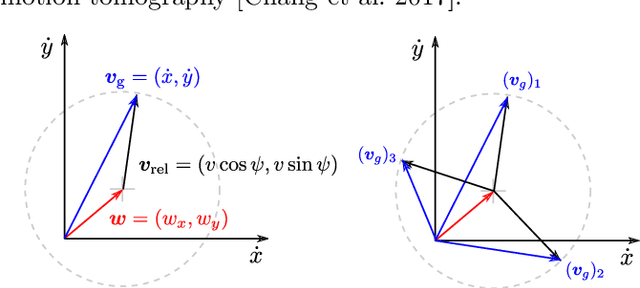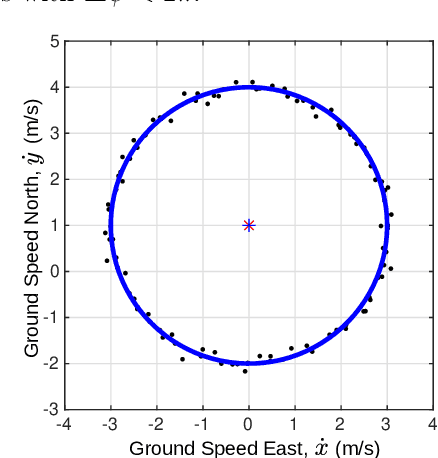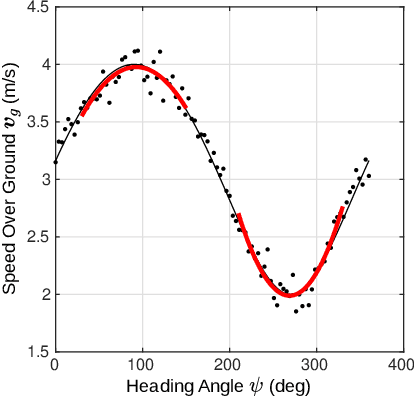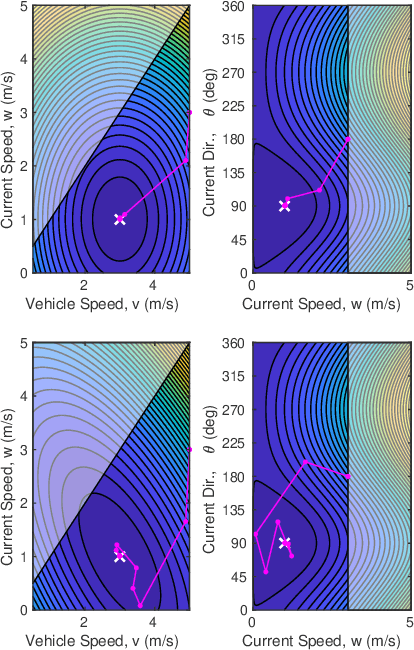Batch Estimation of a Steady, Uniform, Flow-Field from Ground Velocity and Heading Measurements
Paper and Code
Feb 26, 2024



This paper presents three batch estimation methods that use noisy ground velocity and heading measurements from a vehicle executing a circular orbit (or similar large heading change maneuver) to estimate the speed and direction of a steady, uniform, flow-field. The methods are based on a simple kinematic model of the vehicle's motion and use curve-fitting or nonlinear least-square optimization. A Monte Carlo simulation with randomized flow conditions is used to evaluate the batch estimation methods while varying the measurement noise of the data and the interval of unique heading traversed during the maneuver. The methods are also compared using experimental data obtained with a Bluefin-21 unmanned underwater vehicle performing a series of circular orbit maneuvers over a five hour period in a tide-driven flow.
 Add to Chrome
Add to Chrome Add to Firefox
Add to Firefox Add to Edge
Add to Edge